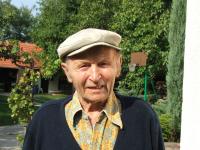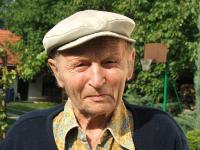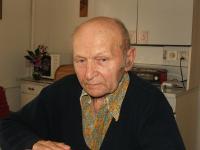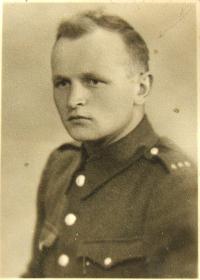We didn’t have anything to do so we dug fifty covered dug-outs around the village

Stáhnout obrázek
Václav Fiala was born on September 28, 1921, in the village of Kupičov in Volhynia. He grew up in an agricultural family and environment. From 1943 to 1944 he came together with his fellow townsfolk from Kupičov to protect the village from Hitler‘s army. In the spring of 1944 he was sent to training in the town of Luck and then he was transferred to Bessarabia. After his training he was with the signalmen, then with the radio operators and eventually he became a member of the 2nd infantry battalion. He took part in the battles for Dukla and later he guarded the frontline in Vsetín. He saw the end of war in the north of Bohemia. He served in the army till 1946, then he returned to farming.



